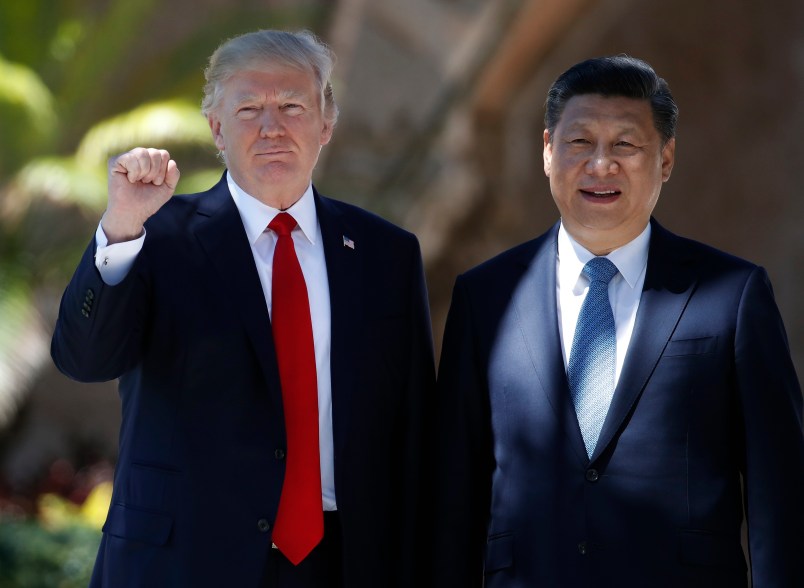President Trump flipped on maybe half of his major campaign promises yesterday. That’s an issue in itself. But I want to zoom in on the specific issue of Trump’s out of nowhere about-face on designating China as a “currency manipulator” – a technical executive branch finding which brings lots of penalties in its wake.
The President is clearly involved in a bargaining with China in which we are signaling flexibility on the economic and trade relationship for assistance dealing with North Korea. This announcement is almost certainly part of that discussion.
Set aside the issue of flip-flops and whether China does manipulate its currency to leverage its trade. Both the best argument and the best critique of trade deals like TPP is their role in solidifying geo-strategic relationships with allies. A major aim of TPP was solidifying a trade regime with US allies on the periphery of China while excluding China. The geo-political advantages of doing so speak for themselves. But are we solidifying US power in Asia on the backs of industrial workers in the US Midwest? The best argument against TPP and related deals is … sure, you’re strengthening your military and diplomatic alliances (perhaps creating a net economic plus for the United States) but you’re doing so at the expense of vulnerable low skilled workers or industrial workers whose jobs can more easily be relocated to factories overseas.
Once again, there are complex arguments about the impact of deals like TPP. Some reject the premise that there’s a net jobs downside. Set those arguments aside. My point is that whatever your opinion on this particular deal, there are always trade-offs like this. Always. Much of Trump’s campaign was based on reorienting US trade and security policy around manufacturing and a crude sort of protection-based industrial policy. And yet he’s made the crudest kind of trade-off pretty much the first time his foreign policy needs came into any tension with his trade and jobs policy. That says a lot.
As we’ve seen on so many fronts, it’s like Trump didn’t get that all of this stuff is really complex and trade-offs must be faced repeatedly and not always with easy answers.
[Did you enjoy reading this post? Considering supporting TPM by subscribing to Prime.]






